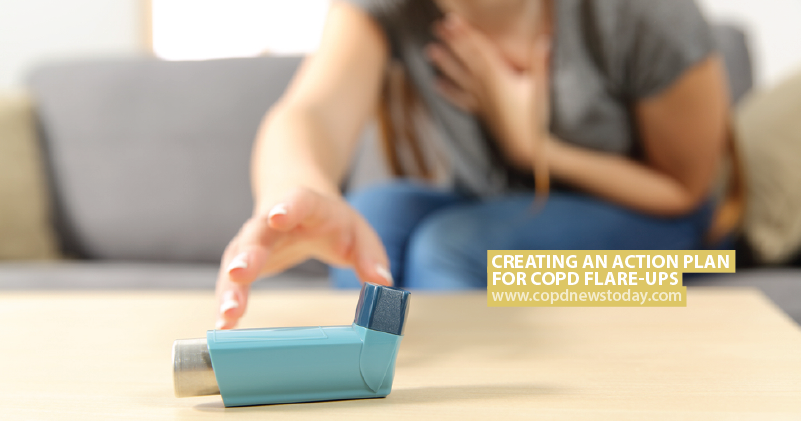Creating an Action Plan for COPD Flare-Ups

If you live with chronic obstructive pulmonary disease (COPD), it’s essential you have an action plan for flare-ups. According to COPD.net, actions plans serve three purposes: to help prevent flare-ups, to realize when you’re having a flare-up, and what to do when you’re experiencing a flare-up.
MORE: Six ways to help you take care of your lungs
Prevention
The best course of action is to try and prevent flare-ups from occurring in the first place. While you won’t always be successful, putting into practice good health habits will help.
Here are a few ways you can help prevent flare-ups:
- Quitting smoking
- Taking medication as directed
- Eating healthily
- Drinking plenty of water
- Resting well
- Exercising regularly
- Avoiding people who are ill
- Washing your hands regularly
- Avoiding lung irritants like pollution, dust, pet dander, secondhand smoke
- Getting yearly flu and pneumonia vaccinations
MORE: Five steps to a COPD-friendly diet.
Realization
The sooner you realize you’re experiencing a flare, the quicker you can deal with it and lessen the severity. Here are the most common warning signs to look out for:
- Persistent cough
- Wheezing
- Increased shortness of breath
- Increase in mucus
- Change in mucus color
- Fever
- Headaches first thing in the morning
- Swelling of the legs or ankles
- Bluish tinge to lips or nailbeds
MORE: COPD patients talk about exacerbations and lung infections.
Action
When you realize that you’re having a flare, it’s important to take the following steps to ensure your flare is treated as quickly as possible. Speak with your healthcare team to come up with a viable action plan that can be implemented easily.
Here are some things you’ll need to think about:
- Do you need a rescue inhaler, nebulizer treatments or other prescribed medications such as antibiotics or steroids?
- Will you need supplementary oxygen?
- Are there any breathing exercises that can help calm you down and aid breathing?
- Should you stop what you’re doing and rest?
- Know when to see a doctor, visit the emergency room or call 911. This is usually if you’re experiencing chest pain, feeling confused or agitated, or are struggling to breathe.
MORE: How best to deal with exacerbations and COPD flare-ups.
COPD News Today is strictly a news and information website about the disease. It does not provide medical advice, diagnosis or treatment. This content is not intended to be a substitute for professional medical advice, diagnosis, or treatment. Always seek the advice of your physician or another qualified health provider with any questions you may have regarding a medical condition. Never disregard professional medical advice or delay in seeking it because of something you have read on this website.






